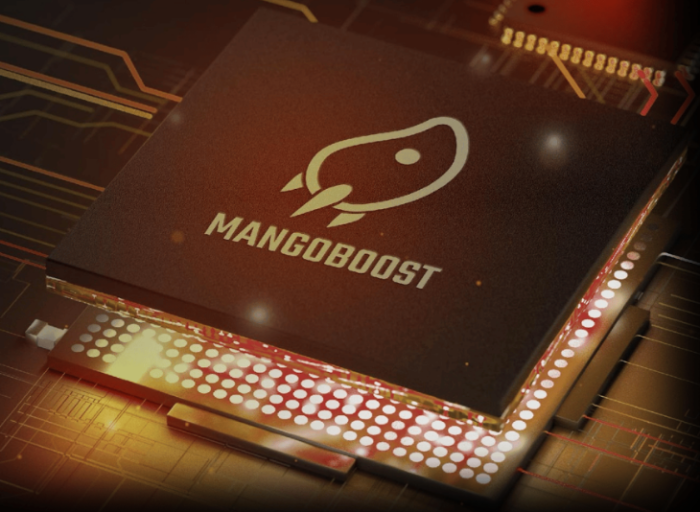Korean startups
Korean semiconductor startups shine in venture downturn
Foreign venture capitalists invest in game developers and K-pop labels such as Fifty Fifty’s Attrakt
By Jan 03, 2024 (Gmt+09:00)
4
Min read
Most Read
LG Chem to sell water filter business to Glenwood PE for $692 million


Kyobo Life poised to buy Japan’s SBI Group-owned savings bank


KT&G eyes overseas M&A after rejecting activist fund's offer


StockX in merger talks with Naver’s online reseller Kream


Mirae Asset to be named Korea Post’s core real estate fund operator



South Korean startups in the semiconductor, eco-friendly and electric vehicle battery sectors succeeded in attracting investors in the second half of last year despite a prolonged domestic venture capital drought with a higher average fundraising value indicating a long-awaited investment recovery.
According to South Korea-based startup and venture capital tracker The VC on Wednesday, 107 local small and medium-sized enterprises and startups raised 857.4 billion won ($656.3 million) through Series A funding rounds in the July-December 2023 period.
That compared with the second half of 2022 when 171 SMEs and startups attracted 1.4 trillion won and the first half of 2023 when 121 companies raised 894.9 trillion won.
The average value of investments, however, rose 8.1% to 8 billion won in the second half of last year from the previous six months, suggesting a recovery in investments, especially in startups with technology competitiveness, industry sources said.
Series A financing refers to an investment in a privately held startup after it has shown progress in building its business model and demonstrates the potential to grow and generate revenue.
RUSH TO SEMICONDUCTORS, ECO-FRIENDLY, BATTERY STARTUPS
Investments in semiconductor startups made up 13.9% of total Series A funding rounds in the second half, more than double a year earlier, while startups in eco-friendly, energy, pet and fashion industries raised more money than those in the food and content sectors.
MangoBoost Inc., a data processing unit (DPU) and artificial intelligence server infrastructure company, raised $55 million through its Series A funding round, becoming the startup that raised the most money through financing in the period.
MangoBoost, founded in March 2022 by Kim Jangwoo, an electrical and computer engineering professor at Seoul National University, and his students, provides solutions to optimize the performance of data centers and cut costs.
Its corporate value was estimated at $305 million during the funding round, surging by more than six times in just over a year.
Utronix, a manufacturer of flexible printed circuit boards for mobile devices and automotive electronics, raised 20 billion won, while Withwave Inc., a producer of high-speed connectors for communication, attracted 10 billion won. Moreh Inc., an AI chip software developer, received 15 billion won from South Korea’s leading telecom carrier KT Corp. and its subsidiary KT Cloud Corp.
Eco-friendly product makers attracted a large amount of funding. SM Instruments Inc., a manufacturer of ultrasonic cameras that detect gas leaks, raised 26 billion won. Aetech, an AI-driven waste-sorting robot maker, received 8.6 billion won.
NanoCamp Inc. and EnFlow Co., advanced solid-state battery materials startups, attracted 20 billion won and 7 billion won, respectively. Solid-state batteries are touted as “dream batteries” for EVs, which the global cell industry is scrambling to develop, thanks to their better safety and higher energy density than lithium-ion models.
Startups in the fashion and pet sectors were also investor favorites. Piece Piece Studio, a fashion house of popular brands such as Mardi Mercredi, raised 50 billion won, while Kristin Co., a designer shoe brand, collected 7 billion won.

BMSmile Co., an e-commerce platform operator for pet products, received a strategic investment of 28 billion won from SK Networks Co., the general trading and rental arm of South Korea’s No. 2 conglomerate SK Group. SK Telecom Co., Sunghong Co. and Byuksan Corp. joined a funding round for 30 billion won of ImpriMed Inc., which provides an anti-cancer drug analysis service for dogs.
FOREIGNERS STILL LOVE GAMES, ENTERTAINMENT
Foreign investors preferred early stage startups in the game and entertainment sectors.
Griffin Gaming Partners, a leading venture capital firm based in Santa Clara, California focusing on the global gaming industry, injected 15 billion won into BlackStrom Inc., a developer of massively multiplayer online role-playing games (MMORPGs) for PCs.
Bandai Co., a Japanese multinational toy manufacturer, invested 13.7 billion won in YLab Corp., a webtoon and animation studio.
Attrakt Co., the label behind K-pop rookie sensation Fifty Fifty, attracted 10 billion won from Singaporean investment company Evergreen Group Holdings.
Modhaus Inc., the agency of girl group TripleS, raised 10.4 billion won through a funding round, in which overseas venture capitalists such as the US’ Reflexive Capital Management LP and Sfermion, as well as Japan’s Global Brain and Singapore’s Foresight Ventures Investments.
KB INVESTMENT, IBK MOST ACTIVE
Among South Korean venture capitalists, KB Investment Co. and Industrial Bank of Korea (IBK) most actively invested in Series A funding rounds, participating in eight cases.
Hana Ventures Inc. invested in seven Series A financing rounds, while Korea Investment Partners Co. and Korea Credit Guarantee Fund participated in six.
The state-run Korea Development Bank, IMM Investment Co., Company K Partners Ltd. and Shinhan Capital Co. each joined in five.
On the other hand, non-financial companies cut investments in startups. In the second half of last year, only 32 non-financial companies participated in Series A financing rounds for 30 startups, less than half that of a year earlier when 67 companies invested in 61 startups.
Write to Lan Heo at why@hankyung.com
Jongwoo Cheon edited this article.
More to Read
-
 Artificial intelligenceSK Telecom invests in AI startups Allganize, Imprimed
Artificial intelligenceSK Telecom invests in AI startups Allganize, ImprimedNov 06, 2023 (Gmt+09:00)
1 Min read -
 Korean startupsSK Networks invests $20.7 mn in pet care startup
Korean startupsSK Networks invests $20.7 mn in pet care startupOct 30, 2023 (Gmt+09:00)
1 Min read -
 Venture capitalKorean startups feel bite of funding drought in H1
Venture capitalKorean startups feel bite of funding drought in H1Jul 07, 2023 (Gmt+09:00)
3 Min read -

Comment 0
LOG IN


